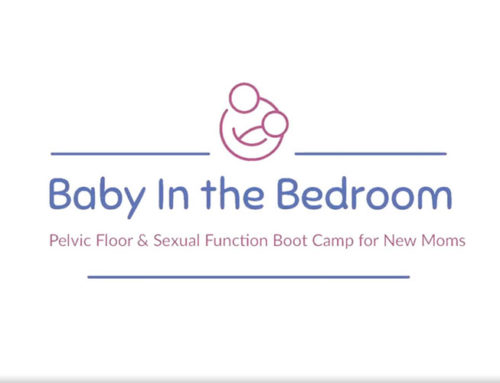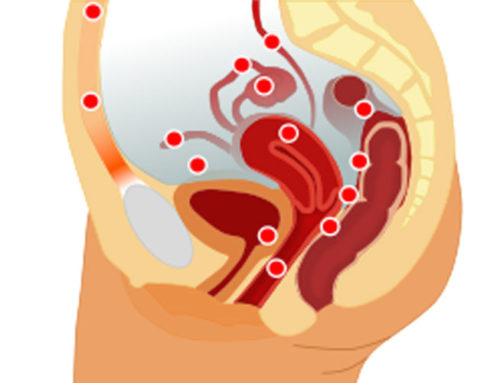Parenthood and the erotic sinkhole
 My father recently called to wish me a happy birthday, and as I was his firstborn out of four, he told me that my birth was one of the most life-changing events of his life. This was intended of course as a father’s extension of affection, however I could not help but tease him, “Life altering indeed, do you mean for better or worse?” He reassured me of course for the better, but he knew exactly what I meant, because all parents do.
My father recently called to wish me a happy birthday, and as I was his firstborn out of four, he told me that my birth was one of the most life-changing events of his life. This was intended of course as a father’s extension of affection, however I could not help but tease him, “Life altering indeed, do you mean for better or worse?” He reassured me of course for the better, but he knew exactly what I meant, because all parents do.
Parenthood is one of the most rewarding experiences of a lifetime, however the impact on the intimacy of marriage is undisputed: there are over 100 studies to date that reveal marital satisfaction significantly plummets after the birth of a first child. Couples with children have been found to treat one another with more contempt, belligerence and with less affection, humor, and empathy than couples without children but married for the same amount of time based on studies completed by John and Julia Gottman, cofounders of the Gottman Institute in Seattle.
Sexual satisfaction is one of the most important predictors of general relationship happiness, and the effect of child-rearing has tremendous impact on a couples’ capacity to revel in the erotic component of their love for one another. Raising children deteriorates intimacy in various ways, ranging from hormonal changes, sleep deprivation, to restriction of personal freedom and time.
Is it impossible to have great sex after you have kids?
After a woman has a baby and during lactation, prolactin and oxytocin production depress testosterone and estrogen levels, leading to symptoms like decreased libido and vaginal dryness that can cause pain with intercourse. Men who are highly engaged in the child-rearing process have also been shown to have lower testosterone levels then men of similar age without children which lead to sexual concerns such as reduced interest in sex and erectile dysfunction. Biologically mating is reduced as a priority and energy is conserved towards child caregiving.
But the challenges of parenthood on sexual satisfaction do not relent once children grow older. Lack of privacy, time restrictions with busy household schedules, and stressors of everyday life with children clearly impact most couples’ capacity to remain connected over time. Many women who are going through the hormonal transition of menopause which may bring numerous sexual function challenges simultaneously find themselves faced by adolescent children also transitioning through their own emotional and hormonal puberty development which can cause added friction in the household. Furthermore, the number of adult children returning to live at home after college has spiked to an all-time high likely due to economic struggles and the difficulty in recent years of acquiring employment as a young adult.
So what is there to do for parents to get their groove back on? The single most important strategy to improve the romantic and sexual connection in a relationship after children is to prioritize it. And this often requires parents to readjust their child-centered focus to recognize that happy, fulfilled adults in fact contribute to improved parenting, and this means mom and dad need time to themselves.
Boundaries need to be developed and withheld over time to protect the space required to foster intimacy between parenting partners. A sex therapist is a psychotherapist who is specially trained to offer detailed and personalized suggestions to make changes work that foster enhanced intimacy.
Seeing a physician to address medical issues such as hormone imbalance, insomnia, fatigue, and mood complaints that can accompany child stressed living is also a necessity to improve sexual function.
Antidepressant medications are commonly prescribed to men and women who struggle with sadness, anxiety, and irritability that can occur when parenting produces stress on a marriage. Unfortunately many of these medications have clear sexual side effects and may reduce interest in sex, ability to orgasm, or disrupt erectile function further.
Talking with a physician who understands the complex factors involved in mood medication options in the face of sexual and intimacy difficulties is important because if a prescription is warranted thoughtfully management can reduce consequences on sexual function alongside lifestyle measures to improve self-care.
Furthermore parents need to remember that play and adventure is just as important for them as it is for their children. Many parents who are struggling in their marriage cannot recall the last thing they did that was fun together. Partner resentment is one of the strongest correlates to low libido in both men and women. Regular ‘date nights’ and overnight trips taken together without children outside the household can drastically improve communication, intimacy, and connection in a relationship feeling weighed down by child-rearing responsibilities.
“Where are you guys going on date night tonight?” is a common inquiry in our household. Our children are intuitive and insightful as many kids are, and they quickly learned to adapt and respect parental private time that is a regular scheduled part of our family week. They recognize the value this time provides to us not by understanding what we do during our time away from them, but by how relaxed and happy we are when we return which in turn results in our capacity to be more loving, present, and playful with them. Furthermore mirroring healthy adult connection could in fact be argued to be a pivotal parental responsibility.
While the birth of a child and initiation into parenthood is a life altering event and can throw a wrench in the erotic works of relationships, making efforts to prioritize intimacy and keep the mechanics greased fosters a thriving marriage, and in the end this is nothing but win-win for children as well as parents.
























